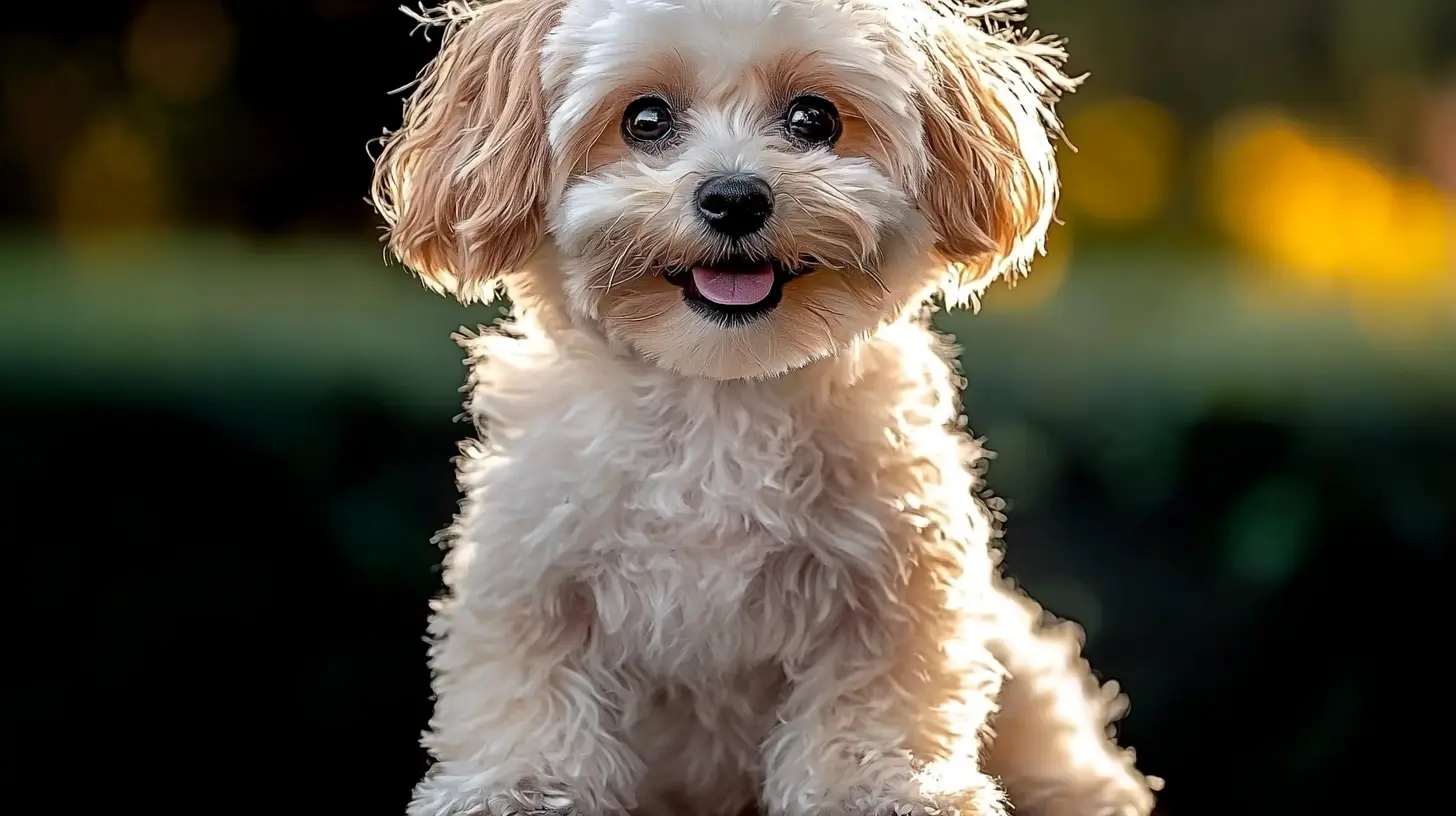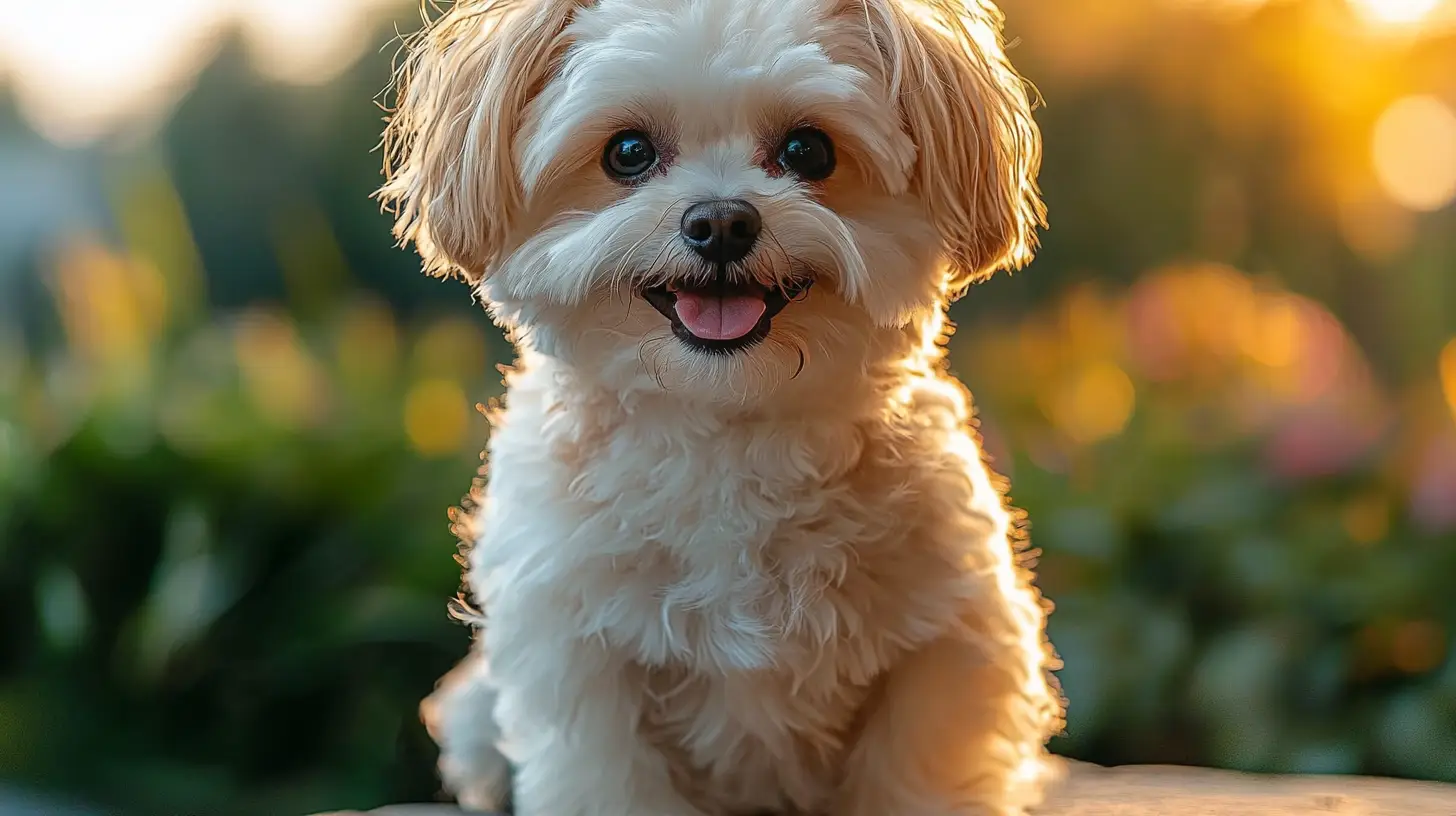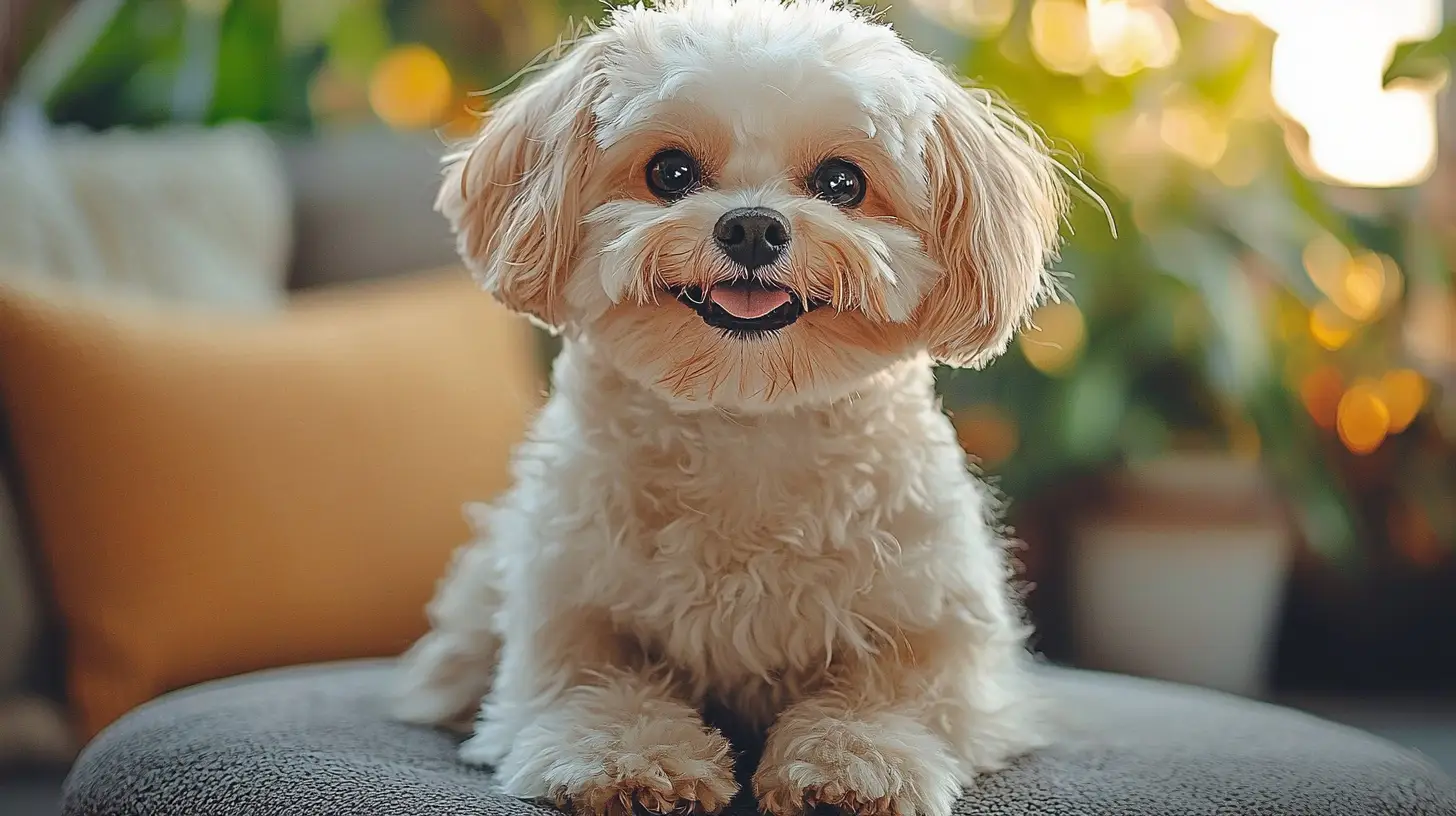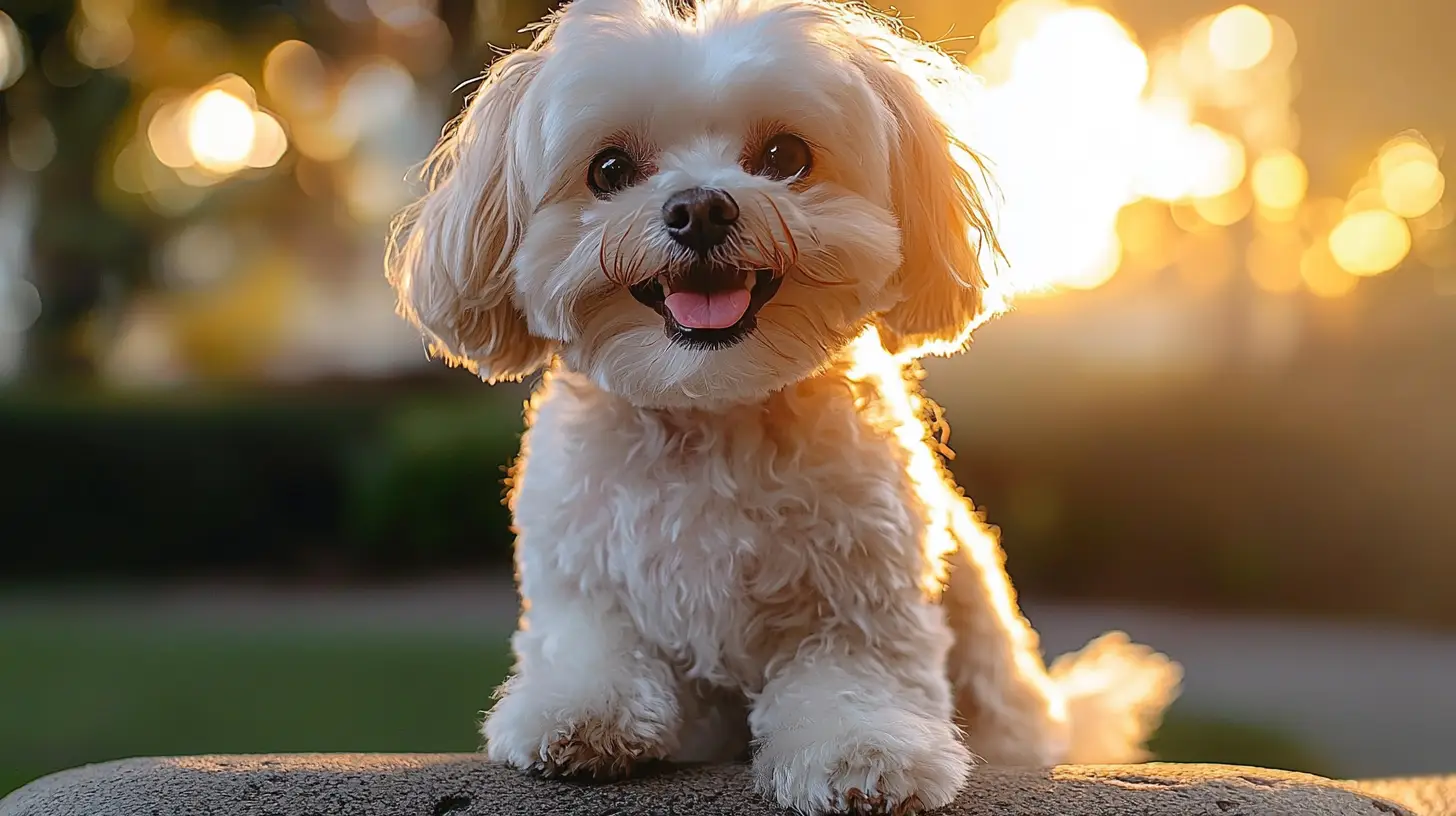A Shih Poo is a delightful mixed breed dog that brings together the playful, affectionate nature of the Shih Tzu and the intelligence of the Poodle. This small, hypoallergenic companion dog is perfect for people looking for a loyal and low-shedding pet. Despite their relatively small size, Shih Poos are known for having big personalities. They love to be pampered and often become the center of attention in any household.
The Shih Poo is part of the growing trend of designer dog breeds, bred specifically for their friendly demeanor, hypoallergenic coats, and adaptability to various living situations. They’re small enough to thrive in apartments but versatile enough to enjoy life in a home with a yard. A Shih Poo’s love for attention and companionship makes them an ideal pet for many types of families, from single-person homes to larger households with children and other pets.
History and Origins of the Shih Poo Breed
The Shih Poo is a relatively new breed, developed in North America as part of the designer dog movement. These designer dogs are bred to combine the best traits of two purebred parents. In the case of the Shih Poo, the parent breeds are the Shih Tzu and the Toy or Miniature Poodle.
The Shih Tzu, a breed with origins in China, was once a favored companion of Chinese royalty, known for its long, flowing coat and affectionate personality. The Poodle, on the other hand, originated in Germany and France, prized for its intelligence, agility, and hypoallergenic coat. Both parent breeds bring unique characteristics to the Shih Poo, creating a dog that’s not only beautiful but also intelligent, friendly, and hypoallergenic.
While the Shih Poo isn’t recognized as an official breed by major kennel clubs like the AKC (American Kennel Club), they’ve gained popularity for their versatility, adaptability, and low-shedding coats. They are now commonly found in homes across North America, and many Shih Poos are available for adoption through rescues and shelters, as well as from breeders.

Physical Characteristics of Shih Poo Dogs
Shih Poos are a small breed, typically weighing between 8 and 18 pounds and standing about 8 to 18 inches tall. Their small stature makes them well-suited for apartments or homes with limited space. While Shih Poos tend to inherit characteristics from both the Shih Tzu and Poodle, their appearance can vary widely depending on which parent they take after more.
Coat and Colors
The Shih Poo’s coat is one of its most appealing features, especially for people with allergies. Thanks to their Poodle parent, most Shih Poos have a hypoallergenic coat that doesn’t shed much. The coat can range from straight and silky like a Shih Tzu to curly and dense like a Poodle. Many Shih Poos fall somewhere in between, with soft, wavy fur.
In terms of color, Shih Poos come in a wide variety. Their coats can be black, white, brown, cream, gray, apricot, or any combination of these colors. Some Shih Poos also have markings that add to their adorable appearance, making each dog unique.
Facial Features and Build
Shih Poos typically have a round face with expressive eyes, giving them an almost teddy bear-like appearance. Their ears are floppy and covered in soft fur, and they often have a short muzzle like their Shih Tzu parent. Shih Poos have a compact, sturdy build that allows them to be active and playful without being fragile.
Temperament and Personality Traits
Shih Poos are known for their sweet, loving, and playful personalities. They inherit the best traits from both parent breeds, combining the loyalty and affection of the Shih Tzu with the intelligence and trainability of the Poodle.
Affectionate and Social
Shih Poos love attention and thrive in environments where they receive plenty of love and affection. They are loyal to their owners and often form close bonds with their families. These dogs enjoy being the center of attention and are happiest when they are around people. Shih Poos are known to follow their owners from room to room, eager to be part of whatever is happening.
Friendly and Playful
Despite their small size, Shih Poos are full of energy. They enjoy playtime, whether it’s a game of fetch or running around the house. Shih Poos also tend to be friendly with other pets and people, making them excellent companions in households with multiple animals or children. They love socializing and will often greet guests with enthusiasm.
Stubborn but Intelligent
While Shih Poos are intelligent, they can also inherit a bit of stubbornness from their Shih Tzu parent. This means they might not always be eager to follow commands, especially if they sense inconsistency in training. However, with patience and positive reinforcement, Shih Poos can be trained to follow basic commands and behave well.

Living with a Shih Poo: Is it the Right Dog for You?
Shih Poos are adaptable dogs that can fit into a variety of living situations. Whether you live in a small apartment or a larger home, a Shih Poo can thrive as long as they are given enough attention and exercise.
Great for Families and Singles
Shih Poos make wonderful companions for single people, couples, and families alike. They are good with children, but due to their small size, it’s important to teach children to handle them gently. Their friendly nature and eagerness to please also make them a good choice for older adults looking for a loyal, low-maintenance companion.
Apartment-Friendly
Shih Poos are well-suited for apartment living because of their small size and relatively low exercise needs. They do not require a large yard, but they do need daily walks and playtime to keep them healthy and happy.
Health Considerations and Lifespan
Shih Poos generally live long, healthy lives, with an average lifespan of 14 to 16 years. However, like all breeds, they are prone to certain health conditions that can be inherited from their parent breeds.
Common Health Issues
- Dental Problems: Small breeds like Shih Poos are prone to dental issues, so regular teeth cleanings are essential.
- Patellar Luxation: This is a condition in which the kneecap slips out of place, which can cause discomfort and mobility issues.
- Hip Dysplasia: Although more common in larger breeds, Shih Poos can occasionally suffer from hip dysplasia, a condition where the hip joint doesn’t fit properly into the socket.
- Eye Problems: Shih Poos can be prone to eye conditions such as cataracts and progressive retinal atrophy. Regular veterinary checkups can help catch these issues early.
- Hypothyroidism: This condition affects the thyroid and can lead to weight gain, lethargy, and skin problems. Fortunately, it can be managed with medication.
Regular veterinary checkups and a healthy diet are key to keeping your Shih Poo healthy throughout their life.
Training a Shih Poo: Tips for Success
Training a Shih Poo can be a rewarding experience, but it does require patience and consistency. Due to their Poodle lineage, Shih Poos are intelligent and capable of learning commands quickly. However, their Shih Tzu side may make them more stubborn, so it’s important to start training early.
Positive Reinforcement
Like most dogs, Shih Poos respond best to positive reinforcement. Using treats, praise, and play as rewards will encourage them to follow commands and behave well.
Consistency is Key
Consistency is crucial when training a Shih Poo. Since they can be a bit stubborn, it’s important to establish a routine and stick to it. Short, frequent training sessions tend to work best for this breed.
Socialization
Early socialization is essential for a well-adjusted Shih Poo. Introducing them to a variety of people, environments, and other animals at a young age will help them become confident and friendly adults.
Exercise and Activity Needs
While Shih Poos are small, they are energetic dogs that require regular exercise to stay healthy and happy. They enjoy daily walks and playtime but don’t have the high energy levels of some larger breeds.
Daily Walks
A 20- to 30-minute walk each day is usually enough to satisfy a Shih Poo’s exercise needs. In addition to walks, Shih Poos enjoy playing fetch or chasing toys around the house or yard.
Mental Stimulation
Because Shih Poos are intelligent, they also need mental stimulation to prevent boredom. Puzzle toys, obedience training, and interactive games are great ways to keep their minds engaged.

Grooming and Coat Maintenance
Shih Poos are low-shedding dogs, making them a good choice for people with allergies. However, their coat requires regular grooming to prevent mats and tangles, especially if they have inherited the curly coat of the Poodle.
Brushing
Shih Poos should be brushed several times a week to keep their coat looking its best. A slicker brush or comb works well to remove tangles and prevent mats.
Bathing
A Shih Poo’s coat will benefit from regular baths, usually once a month or as needed. Use a gentle dog shampoo to avoid irritating their skin.
Trimming
Depending on the coat type, Shih Poos may need regular trims to keep their fur at a manageable length. Many owners take their Shih Poo to a professional groomer every 6 to 8 weeks.
FAQs about Shih Poo Dogs
Are Shih Poos good with children?
Yes, Shih Poos are generally good with children. However, due to their small size, they should be supervised around very young children who may accidentally handle them too roughly.
Do Shih Poos shed?
Shih Poos are low-shedding dogs, thanks to their Poodle lineage. This makes them a good choice for people with allergies.
How much exercise does a Shih Poo need?
Shih Poos need daily walks and playtime to stay healthy, but they don’t have high exercise needs compared to more active breeds.
Are Shih Poos easy to train?
Shih Poos are intelligent but can be a bit stubborn. With consistent training and positive reinforcement, they can learn commands quickly.

